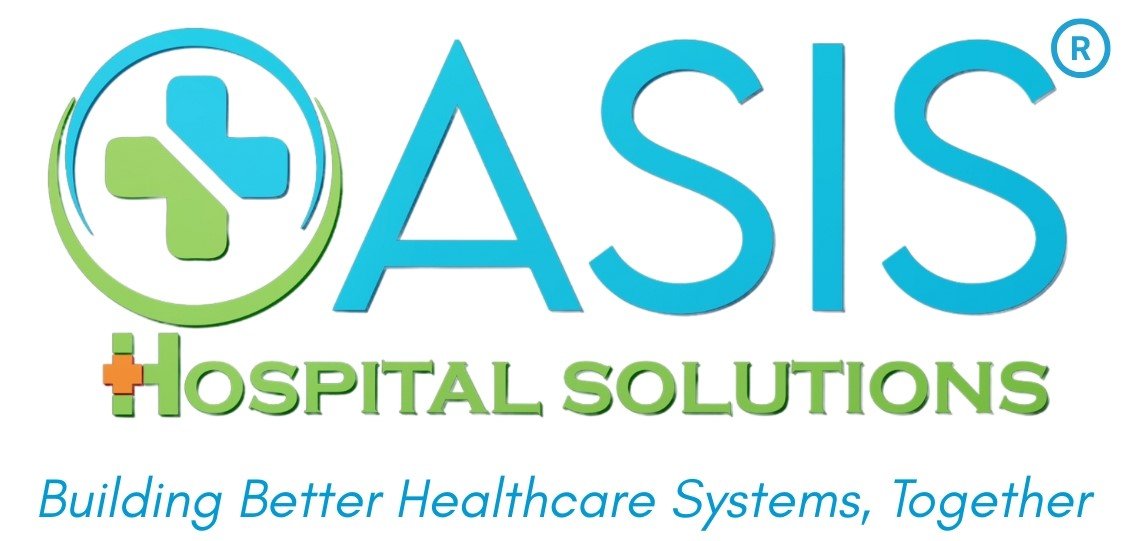
Hospital Tie-Ups With Insurance Companies: How Oasis Hospital Solutions Helps Hospitals Form Successful Partnerships
In today’s healthcare landscape, the relationship between hospitals and insurance companies has become increasingly vital. These partnerships, known as hospital tie-ups, play a crucial role in ensuring that patients receive the best care possible without being burdened by excessive costs. But what exactly are these tie-ups, and why are they so important? More importantly, how can hospitals navigate the complexities of these partnerships to maximize their benefits? Let’s dive in and explore how Oasis Hospital Solutions is helping hospitals achieve these goals.
Understanding Hospital-Insurance Tie-Ups
- So, what exactly are hospital tie-ups with insurance companies? Simply put, these are agreements between hospitals and insurance providers where the hospital agrees to offer services to patients covered by the insurer. In return, the insurer ensures that the hospital receives timely payments for the services provided. This arrangement not only benefits the hospital and the insurance company but also the patients who gain access to more affordable healthcare.
- These partnerships have evolved significantly over the years. Initially, they were simple agreements for fee-for-service payments. However, with the advent of managed care and value-based care models, the dynamics have shifted. Now, these tie-ups often include incentives for hospitals to provide high-quality care while keeping costs down, a win-win situation for everyone involved.
Advantages of Hospital Tie-Ups with Insurance Companies
Increased Patient Base
- One of the most obvious advantages of hospital-insurance tie-ups is the access to a broader patient base. When a hospital partners with an insurance company, it becomes a preferred provider for the insurer’s policyholders. This means more patients are likely to choose that hospital for their healthcare needs, driving up patient volume and, consequently, revenue.
Financial Stability for Hospitals
- Another significant benefit is the financial stability that comes with these partnerships. Hospitals can rely on a steady stream of income from insured patients, reducing the unpredictability of patient payments. This stability allows hospitals to plan and invest in better facilities, staff, and technology, ultimately improving the quality of care.
Enhanced Patient Satisfaction
- Hospital tie-ups also enhance patient satisfaction. With these agreements in place, patients can enjoy simplified billing processes, as insurance companies handle most of the payment procedures directly with the hospital. This reduces the stress and confusion often associated with medical bills, leading to higher patient satisfaction and loyalty.
Improved Operational Efficiency
- Lastly, these partnerships can significantly improve a hospital’s operational efficiency. With streamlined claims and reimbursement processes, hospitals can reduce administrative burdens and focus more on patient care. This efficiency not only benefits the hospital but also translates to faster service and reduced waiting times for patients.
How Insurance Tie-Ups Impact Patients
Lower Out-of-Pocket Expenses
- For patients, one of the most significant advantages of hospital tie-ups with insurance companies is the reduction in out-of-pocket expenses. With insurance covering a significant portion of medical costs, patients are relieved from the burden of high upfront payments. This financial relief is particularly important in emergency situations where immediate care is necessary.
Access to Quality Healthcare
- Another benefit for patients is improved access to quality healthcare. Insurance tie-ups often mean that patients have access to a network of hospitals that meet specific quality standards set by the insurer. This ensures that patients receive care from facilities that adhere to high standards of medical practice.
Peace of Mind for Patients
- Perhaps the most intangible yet invaluable benefit is the peace of mind that comes with knowing you’re covered during a medical emergency. Patients can rest easy knowing that their insurance will cover them at a trusted hospital, allowing them to focus on recovery rather than financial stress.
Challenges Faced by Hospitals in Forming Tie-Ups
- While the benefits are clear, forming these tie-ups isn’t without its challenges. Hospitals often face several hurdles that can complicate the process.
Negotiation Difficulties
- One of the primary challenges is negotiation. Hospitals and insurance companies need to agree on rates, coverage terms, and other critical aspects of the partnership. These negotiations can be complex, with each party trying to maximize its own benefits, which can lead to prolonged discussions and potential delays in finalizing agreements.
Regulatory Hurdles
- Another challenge is navigating the complex web of regulations that govern healthcare and insurance industries. Hospitals must ensure that their tie-ups comply with local, state, and federal laws, which can be a daunting task without the right expertise.
Operational Challenges
- Operational challenges also abound. Once a tie-up is formed, hospitals need to manage the increased administrative load that comes with it. This includes handling insurance claims, managing patient data, and ensuring that all processes are aligned with the insurer’s requirements. Without proper management, these tasks can strain a hospital’s resources.
Oasis Hospital Solutions: An Overview
- This is where Oasis Hospital Solutions comes in. Oasis is a company dedicated to helping hospitals navigate the complexities of forming successful insurance tie-ups. With years of experience in the healthcare industry, Oasis understands the unique challenges hospitals face and offers tailored solutions to overcome them.
How Oasis Hospital Solutions Assists Hospitals in Forming Tie-Ups
- Oasis Hospital Solutions offers a comprehensive suite of services designed to make the process of forming insurance tie-ups as smooth as possible. Let’s take a closer look at how they do this.
Strategic Consulting
- First and foremost, Oasis provides strategic consulting to hospitals. This involves analyzing the hospital’s current operations, understanding its goals, and offering tailored advice on how to form effective partnerships with insurance companies. Whether it’s identifying the right insurers to partner with or advising on negotiation tactics, Oasis provides the insights needed to create successful tie-ups.
Negotiation Support
- Negotiations can be tough, but Oasis offers expert support to help hospitals navigate this challenging process. With their deep understanding of the healthcare industry and insurance landscape, they can negotiate favorable terms that benefit both the hospital and the insurer.
Regulatory Compliance
- One of the most daunting aspects of forming insurance tie-ups is ensuring compliance with all relevant regulations. Oasis helps hospitals navigate this complex terrain by providing guidance on legal and regulatory standards, ensuring that all agreements are above board and fully compliant.
Operational Support
- Finally, Oasis offers operational support to help hospitals manage the administrative tasks that come with insurance tie-ups. This includes streamlining claims processing, improving patient data management, and ensuring that all processes are efficient and effective. With Oasis’s support, hospitals can focus on what they do best—providing high-quality care to their patients.
Case Studies: Successful Tie-Ups Facilitated by Oasis Hospital Solutions
- To illustrate the impact of Oasis Hospital Solutions, let’s look at a few case studies.
Example 1: A Regional Hospital’s Success Story
- In one instance, a regional hospital struggling with low patient numbers and financial instability partnered with Oasis. With Oasis’s guidance, the hospital successfully formed a tie-up with a major insurance provider, which resulted in a significant increase in patient volume and revenue. The hospital also saw improvements in patient satisfaction due to the simplified billing processes.
Example 2: Navigating Regulatory Challenges
- In another case, a hospital was facing difficulties in navigating the complex regulatory environment necessary for forming an insurance partnership. Oasis stepped in to provide expert advice and support, ensuring that the hospital’s tie-up was fully compliant with all regulations. This not only facilitated a successful partnership but also protected the hospital from potential legal issues.
The Future of Hospital-Insurance Tie-Ups
- As we look to the future, several trends are likely to shape the landscape of hospital-insurance tie-ups.
Emerging Trends
- One of the most significant trends is the shift towards value-based care. As more insurers move towards this model, hospitals will need to adapt their operations and focus on providing high-quality, cost-effective care to maintain these partnerships.
Technological Advancements
- Technology will also play a crucial role in the future of these tie-ups. With advancements in healthcare IT, hospitals and insurers can streamline their operations, improve data management, and enhance patient care. These technological innovations will make it easier for hospitals to form and maintain successful insurance partnerships.
Regulatory Changes
- Finally, we can expect changes in healthcare regulations to impact how hospital-insurance tie-ups are formed. As governments continue to reform healthcare systems, hospitals and insurers will need to stay agile and adapt to new rules and standards.
Conclusion
- Hospital tie-ups with insurance companies are essential in today’s healthcare landscape. They provide significant benefits to hospitals, insurers, and patients alike, from financial stability to improved access to care. However, forming these partnerships can be challenging, which is why companies like Oasis Hospital Solutions are so valuable. By providing expert support in strategic consulting, negotiation, regulatory compliance, and operations, Oasis helps hospitals navigate the complexities of insurance tie-ups, ensuring that these partnerships are successful and beneficial for all parties involved.
FAQs
What are the benefits of hospital tie-ups with insurance companies?
Hospital tie-ups with insurance companies increase patient access, ensure financial stability for hospitals, enhance patient satisfaction, and improve operational efficiency.
How does Oasis Hospital Solutions support hospitals in forming tie-ups?
Oasis Hospital Solutions provides strategic consulting, negotiation support, regulatory compliance guidance, and operational support to help hospitals form successful insurance tie-ups.
What challenges do hospitals face when partnering with insurance companies?
Hospitals face challenges such as negotiation difficulties, regulatory hurdles, and operational challenges when forming partnerships with insurance companies.
How do these tie-ups benefit patients?
Patients benefit from lower out-of-pocket expenses, improved access to quality healthcare, and peace of mind knowing they are covered during medical emergencies.
What is the future of hospital-insurance tie-ups?
The future of hospital-insurance tie-ups will be shaped by trends such as value-based care, technological advancements, and changes in healthcare regulations.
